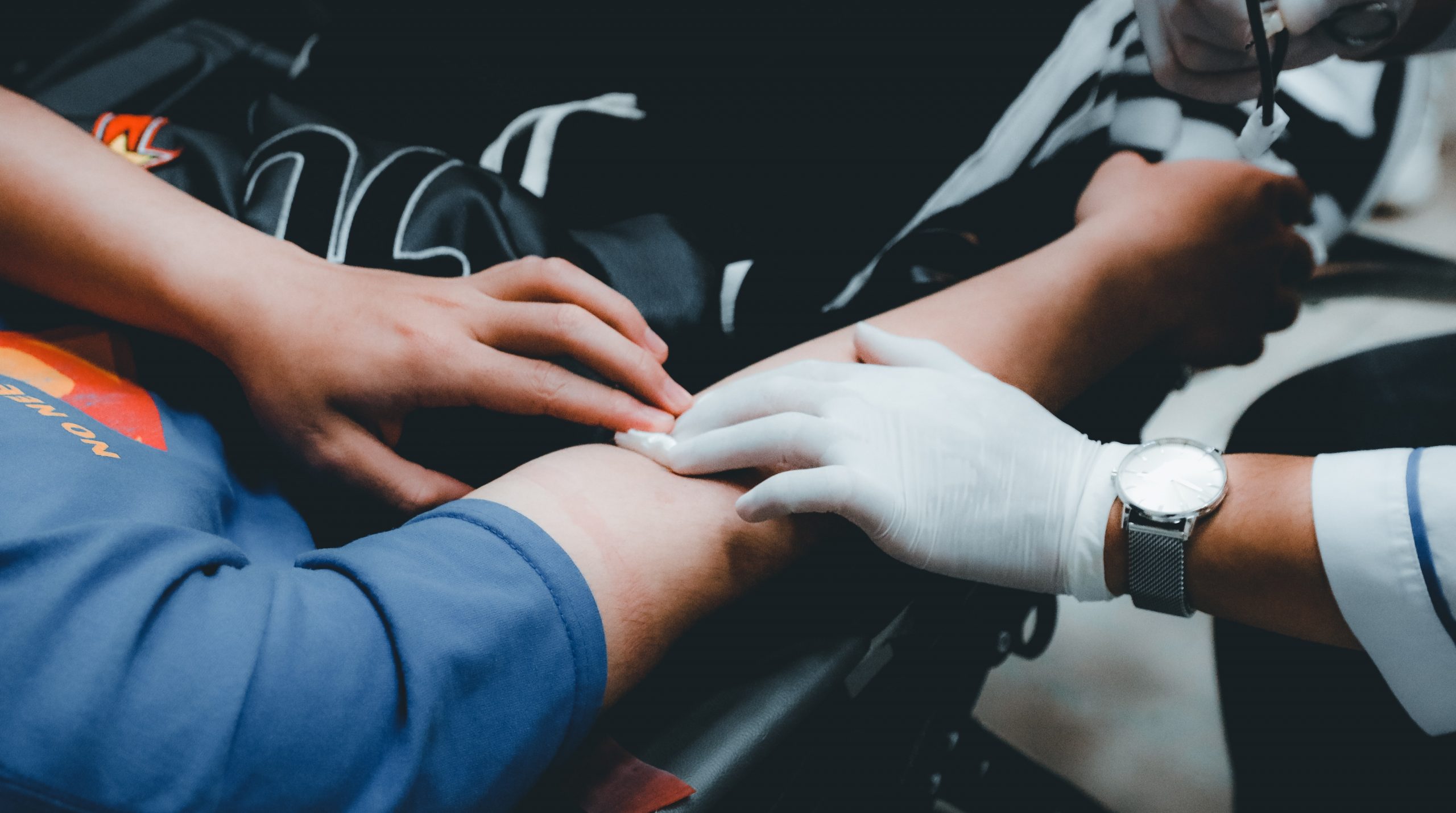It’s believed that a very high number of individuals worldwide may have already come into contact with bloodborne pathogens without them knowing it. This is true not only for medical workers but also for those who aren’t working in the health care sector.
Almost 6 million workers in the United States, for instance, are exposed to potential vectors for biological hazards, according to the data from the Occupational Safety and Health Administration, or OSHA.
While most health staff members constantly train on various medical-related matters, it’s believed that the majority of at-risk persons may not have the proper knowledge of bloodborne pathogens. Workers from outside the health sector are highly likely to be unaware of how bloodborne pathogens spread and how to reduce the threat of infection.
Lack of information leads to elevated risks of contamination. And during this highly critical period of global health security challenges, you need all the valuable information you can get as you prepare yourself to enter the field of medicine.
What Are Bloodborne Pathogens?
If you’re planning a career in the healthcare industry, consider taking a Bloodborne Pathogens Training Program. You can opt for in-person or online training. The lecture introduces the standard methods of handling bloodborne pathogens, as laid out by the Centers for Disease Control and Prevention (CDC) and OSHA.
To the uninitiated, bloodborne pathogens or BBP are transmissible microorganisms in the human blood that cause several diseases. These illnesses include Human Immunodeficiency Virus (HIV), hepatitis B and C, Acquired Immunodeficiency Syndrome (AIDS), and malaria, among many others.
Despite the name, these disease-carrying microorganisms can also be present in other bodily secretions — also referred to as other potentially infectious materials or OPIM. These fluids are usually present around the organ and joints, saliva, vomit, amniotic fluids and secretions from the male and female reproductive systems.
Why Future Health Workers Need BBP Training
Medical workers need protection, being that they work in different highly perilous workplace settings. Besides instituting basic safety measures in hospitals, laboratories and other essential duty spaces, they should have firsthand knowledge to prevent and reduce the spread of fatal diseases. Thus, they need BBP training and other workshops for the following reasons:
1. To Help in Better Diseases Management
Without the proper training courses and other educational resources, you may inadvertently become an oblivious disease spreader. But with the proper knowledge, you may be able to take part in better diseases management.
Bloodborne pathogens spread through blood and other bodily fluids that include respiratory droplets, saliva and vomit. They are all either airborne or stay on the surfaces of fixtures, pieces of furniture, walls, tables and doorknobs.
Workers mostly become exposed to BBP mainly through needlestick injuries, according to the CDC. Nurses and laboratory workers such as medical technologists are particularly at high risk of getting injured. Additionally, many allied workers, such as laundry service workers, janitorial staff and waste removers, are also susceptible to needlestick mishaps.
Apart from needlesticks, sutures and scalpel blades round up the leading causes of pathogen exposure in medical settings.
Once in contact with an infected item, harmful microorganisms could enter a health worker’s facial orifice such as nose, mouth, eyes or from a wound opening. These pathogens multiply inside of the infected person’s body, often without them knowing it.
2. To Aid in Better Prevention and Detection of Ailments
At-risk healthcare employees must be conversant with the proper handling and disposal of medical implements carrying perilous microorganisms to help control the spread of transmissible diseases. Future health workers included.
Prevention is always better than seeking a cure later on. But if not entirely successful in preventing the spread of bloodborne diseases, a trained medical staff that’s aware of the symptoms of certain infectious diseases can help inhibit its further spread by self-quarantining. If the infected person is a friend or a loved one, a BBP-trained individual would know when to request diagnostic tests for proper infection control.
Apart from preventive measures in the workplace, proper BBP training can also empower health workers, non-medical staff and other allied workers to reduce the risk of infection outside of the workplace.
Because viruses continually mutate, training sessions are crucial in updating workers on the new virus strains, how they spread and the different ways to minimize infection rates.
3. To Understand Government Regulations on the Health Sector
As you prepare to work in the health sector, it helps to know how the government strictly regulates the industry. OSHA has developed standards that all medical institutions should adhere to. Failure to stick to their guidelines attracts hefty fines. A quick look at their website reveals that the penalty for every willful or repeated violation is $136,532.
Suppose you decide to run your private clinic after school. And then, OSHA catches you red-handed in violation of their rules. Paying such a humongous amount of money is enough to throw you out of business assuming you’re just starting up. Worse still, they can revoke your business license and leave you jobless.

You don’t want such setbacks in your career. And that’s why you should consider getting trained in important topics that can be useful in your future career in the medical field — topics such as managing bloodborne pathogens.
4. To Improve Future Employability
The current competition for jobs now is believed to be stiffer than ever before. For any advertised position, companies receive hundreds or even thousands of applications. How do you stand out from the crowd? Having a BBP certificate is an added advantage on your part.
Most hospitals and health care institutions require incoming employees to have BBP training. They want an employee who understands the risks of working in such hazardous environments. Additionally, they want to be sure that you know how to stay safe in the course of your duties. If you work for them and happen to be a victim of blood-to-blood infections, the authorities may blame them. Thus, they see a BBP-trained worker as a safer option than a non-BBP-trained one.
Secondly, they need to comply with OSHA regulations lest they lose their operating license. The regulatory body insists that all medical workers should have the proper training and certification. Therefore, you’ll have a higher chance of getting employed quicker if you already have BBP certification and other relevant training seminars.
5. To Prepare for Practical Internships
Most, if not all, medical courses require you to undergo an internship program for several months. Such industrial attachments help solidify the theoretical concepts you cover in class. Any health organization that takes you as an intern understands the risk. You’re still very young in the profession and may not know the dangers of caring for the sick.
If you take a BBP course, you prove that you understand the implications of exposure to BBPs and OPIM. Therefore, they’re more likely to grant you the chance to intern with them. And to add to that, you’ll go through the internship unscathed and go back to college to complete your studies.
6. To Help Complete Required Course Load
Every medical course has a minimum number of units you must cover every semester. For undergraduates, this may be pegged at 12, while for graduate students, it may be only eight. If you find it difficult to enroll and meet the minimum number of units, one way out is to take an online BBP course. Just ensure that your college recognizes such courses as valid for your study program.
7. To Prepare for Further Studies
Suppose you’re currently training as a medical technician, but you’re looking to later enroll in a medicine course to become a doctor. Note that some medical schools have a strict admission process to filter the applicants. One way you can increase your chances of admission to med school is by getting BBP certification. You’ll appear more qualified than other fellow hopefuls who haven’t gone through the training.
For one, med schools involve lots of real-life encounters with the sick. And the administrators need the assurance that you understand universally accepted work practice controls that help you stay free of bloodborne infections. So, having a BBP certificate may mean the difference between securing or failing to secure an admission.
8. To Gear Up for Innovation
As mentioned earlier, the number one risk factor of BBP infections is needlestick injuries. In this sense, there’s a great need to use safer medical devices when attending to the sick. The main concern is how to improve tools like scalpels and syringes and make them safer for medical workers.
During a BBP course, you learn how leading industry experts have already tried various improvements to these devices. But there’s still much room for innovation. Perhaps understanding this need in the medical sector may inspire you to look for never-before-seen solutions. You’ll never know if your novel idea will be the next industry standard in the future.
Bottom Line
Discussed above are just some of the reasons future medical workers like you should enroll in a bloodborne pathogens training program. Look for an institution that offers the course and register as soon as it’s convenient for you. If your schedule doesn’t allow you to attend lessons in person, go for online lessons. You can complete the training from the comfort of your college apartment.
















